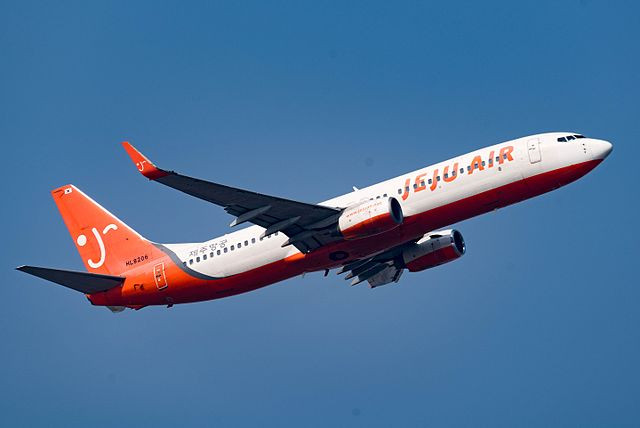South Korea is grappling with one of its worst aviation tragedies after a Jeju Air passenger jet crashed and burst into flames at Muan International Airport on Sunday, killing 179 of the 181 people aboard. The crash has prompted an extensive investigation into its causes, with experts questioning initial suggestions that a bird strike might have triggered the catastrophic landing failure.
The Jeju Air Boeing 737-800, a 15-year-old aircraft, was en route from Bangkok, Thailand, carrying mostly South Korean nationals, including five children under the age of 10. Only two crew members survived the fiery crash, which occurred at 9:03 a.m. local time. Video footage captured the plane skidding across the runway, its landing gear apparently not deployed, before overrunning the airstrip and colliding with a barrier, igniting a massive fireball.
South Korea's transport ministry confirmed the recovery of the plane's flight data and cockpit voice recorders, but officials noted that the latter was damaged, potentially delaying a full analysis by up to a month. The cause of the crash remains under investigation, with preliminary theories centering on mechanical failure and a potential bird strike.
Theories surrounding a bird strike arose after air traffic controllers warned the pilots of bird activity in the area minutes before the crash. According to a local news report, one passenger texted a family member moments before the disaster, saying that a bird "was stuck in the wing" and the plane couldn't land. "Should I leave my last words?" The pilots issued a mayday call shortly afterward, and the plane attempted an emergency belly landing.
BREAKING: Video shows crash of Jeju Air Flight 2216 in South Korea. 181 people on board pic.twitter.com/9rQUC0Yxt8 — BNO News (@BNONews) December 29, 2024
However, aviation experts have expressed skepticism that a bird strike alone could cause such catastrophic damage. Geoffrey Thomas, editor of Airline News, stated, "A bird strike is not unusual, problems with an undercarriage are not unusual. Bird strikes happen far more often, but typically they don't cause the loss of an airplane by themselves," He added that standard protocol for emergency belly landings involves fire trucks laying foam on the runway and ensuring that the plane lands with minimal speed at the furthest end of the airstrip-procedures that appear to have been absent in this case.
Australian aviation safety expert Geoffrey Dell echoed these concerns, saying, "I've never seen a bird strike prevent the landing gear from being extended." Investigators are also exploring whether the pilots had sufficient time to decelerate during the emergency landing, as well as the possibility of multiple contributing factors to the crash.
Joo Jong-wan, South Korea's deputy transport minister, defended the airport's safety measures, stating that the runway ends are equipped with safety zones and buffer areas. The airport was designed "according to standard aviation safety guidelines, even if the wall may appear closer than it actually is," he said.
The disaster has devastated families and drawn worldwide condolences. Kim E-bae, president of Jeju Air, issued a public apology, bowing deeply before grieving relatives at Muan International Airport. He apologized to bereaved families and said he feels "full responsibility" for the incident. Boeing also expressed condolences, pledging to support the investigation.
The tragedy coincides with political upheaval in South Korea, adding to the national anxiety. Acting President Choi Sang-mok, who assumed leadership after President Yoon Suk Yeol's impeachment and declaration of martial law, visited the crash site, urging officials to employ all available resources to identify victims and uncover the truth. A weeklong national mourning period has been declared.
Global leaders, including Thai Prime Minister Paetongtarn Shinawatra, Japanese Prime Minister Shigeru Ishiba, Ukrainian President Volodymyr Zelenskyy, and Pope Francis, have extended condolences. Shinawatra also ordered his government to provide immediate assistance to the families of the victims, which included two Thai nationals.






